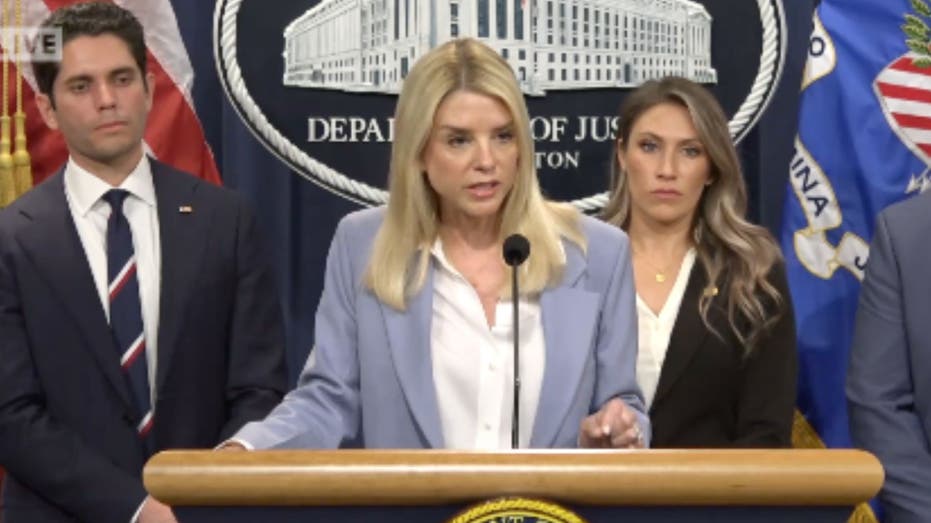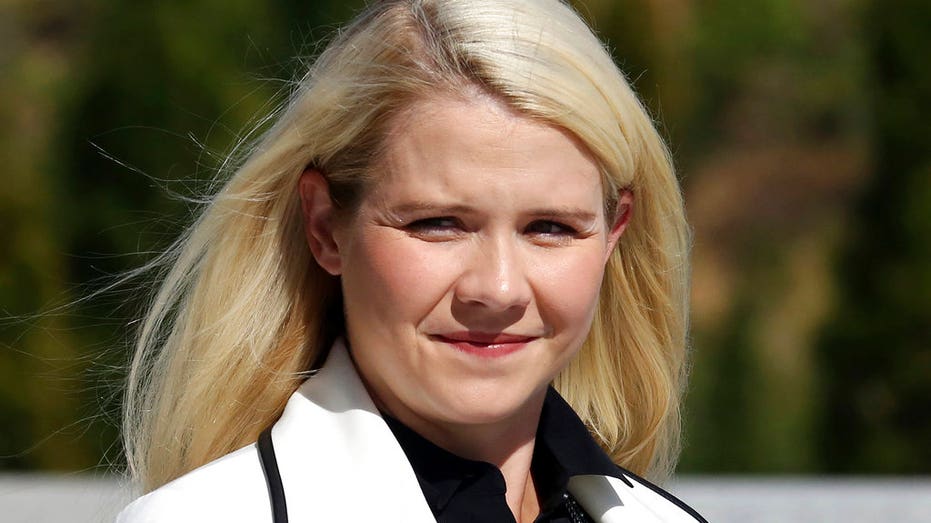Trump puts IRS in middle of fight with Harvard
President Trump doesn't have the legal authority to nix Harvard University's tax-exempt status on his own. But will that stop him? Trump, who has shown a willingness to test the boundaries of the law as he seeks to hurt colleges financially, is at war with Harvard, locked in a lawsuit while he goes after...

President Trump doesn't have the legal authority to nix Harvard University's tax-exempt status on his own. But will that stop him?
Trump, who has shown a willingness to test the boundaries of the law as he seeks to hurt colleges financially, is at war with Harvard, locked in a lawsuit while he goes after its research funding, international students and, perhaps most dangerously for the school, its tax exemption.
The IRS is meant to be a politically independent agency, and the university says the administration has "no legal basis" for its actions.
Experts say taking away Harvard’s tax-exempt status is nearly impossible and that Trump’s comments have already waded into illegal territory.
“My concern is less substantive, because the administration isn't going to win this, even if the IRS follows their direction, unless there is some secret knowledge they have about Harvard. And there's not," said Samuel Brunson, the associate dean for academic affairs at Loyola University Chicago School of Law.
“Harvard is ultimately going to keep its tax exemption, but to the extent that Donald Trump wants to make the IRS a tool for him to go after his real and perceived enemies, that is bad for the IRS. That's bad for democracy,” Brunson added.
Trump has been pushing the revocation of Harvard's tax-exempt status for more than a month as the fight between the Ivy League school and his administration ramps up. In April, his Treasury Department reportedly asked the IRS to make the change.
On Friday, he doubled down.
“We are going to be taking away Harvard’s Tax Exempt Status. It’s what they deserve!” he wrote on Truth Social.
Trump had demanded the nation's oldest school change its policies around admissions and hiring, along with eliminating diversity, equity and inclusion efforts. When it refused, he canceled more than $2 billion in federal funding.
In response, Harvard sued the administration and is denouncing Trump's tax call.
“The government has long exempted universities from taxes in order to support their educational mission. The tax exemption means that more of every dollar can go toward scholarships for students, lifesaving and life-enhancing medical research, and technological advancements that drive economic growth. There is no legal basis to rescind Harvard’s tax-exempt status,” a university spokesperson said.
On Monday evening, the Trump administration announced Harvard would no longer be eligible for new federal grants.
Legal experts say Trump's tax exemption removal push could break the law in two ways.
The first is him asking the IRS to conduct an investigation in the first place. Congress made it illegal for anyone in the executive branch to “request, directly or indirectly, any officer or employee of the Internal Revenue Service to conduct or terminate an audit or other investigation of any particular taxpayer with respect to the tax liability of such taxpayer.”
“I believe that he's in violation of federal law by even suggesting it,” said Raymond Brescia, a law professor at Albany Law School.
Even “if there wasn't an express prohibition on such a threat, it is very difficult to strip a nonprofit of nonprofit status and, even if it was easy, there is still a process,” Brescia added.
The second way is if Trump made the post while there was an active IRS investigation, as it is also illegal for anyone in the executive branch to say whether a certain organization or individual is under an IRS probe.
“We would not know if Harvard is under audit. We would not know. The IRS cannot disclose that information. That's not something that they're permitted to do,” said Philip Hackney, a professor at the University of Pittsburgh School of Law, noting the university is the only participant in that scenario that could make the information public.
And the IRS cannot immediately take away a group’s tax-exempt status, even if it wanted to.
In normal proceedings, the IRS would take months to investigate and give Harvard time to correct any errors that it found so the institution could keep its 501(c)(3) status. If the IRS found Harvard was still in violation and tried to revoke its status, the university could challenge it in court.
But even with Trump’s potentially illegal call for an IRS investigation, Harvard won’t have precise actions it can take until an investigation is in place, if it is not already.
"There are very specific laws that essentially say taxpayers and tax-exempt organizations can't sue over tax issues unless and until the IRS does something. So, Harvard will be able to sue if the IRS actually does revoke its exemption. Harvard will be able to sue if the IRS determines that it owes taxes. But until something like that happens, Harvard doesn't have the ability to go to court,” Brunson said.
The IRS has already been the center for political controversies in Trump's first months back in office, tearing through four different acting commissioners.
The agency went from a hiring spree under the Biden administration to losing 40 percent of its workforce, as well as the Department of Government Efficiency coming in and gaining access to taxpayer data over the strenuous objections of Democrats.
The only school to ever lose its tax-exempt status was Bob Jones University back in the 1980s because it would not allow students in interracial marriages to be admitted.
Losing tax-exempt status could be a major financial hit to Harvard, affecting donations, its endowment and of course forcing the university to pay federal, state and local taxes.
“The primary argument here is that Harvard is doing something that is important to our country, and we uniformly recognize that education is an important purpose. And so, all our private schools across the country derive their exempt status from this same provision,” Hackney said.
Loss of that status could “cause a lot of difficulty for Harvard across its operations. ... It would be enormously disruptive. And if they just revoke it without any process, I think that would be highly unfair and highly disruptive and highly harmful to Harvard and all the members,” he added.



















_Alexey_Kotelnikov_Alamy.jpg?width=1280&auto=webp&quality=80&disable=upscale#)



















































